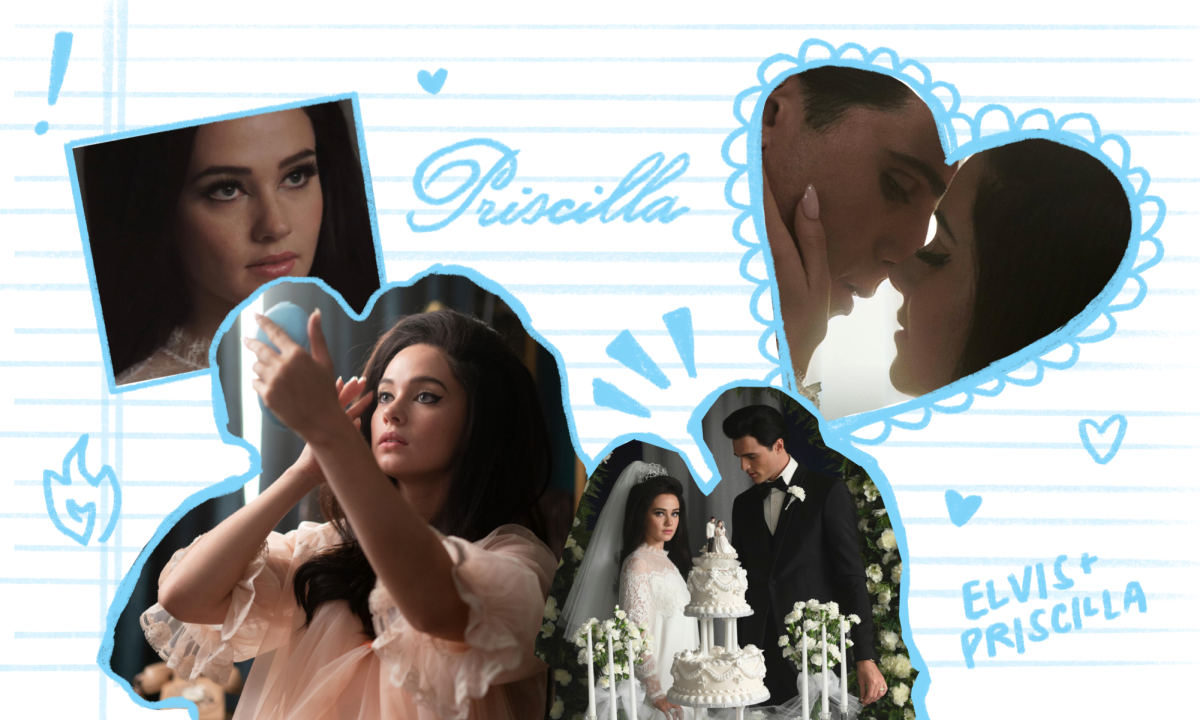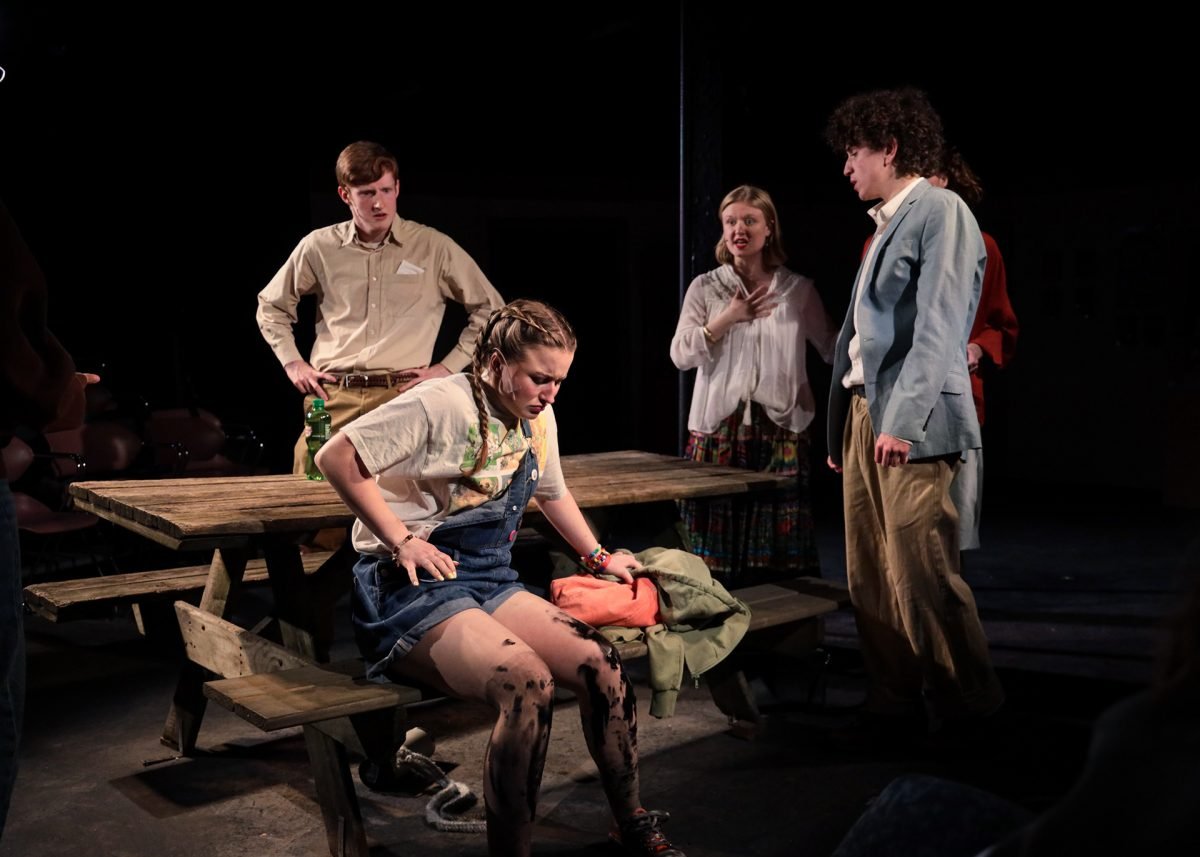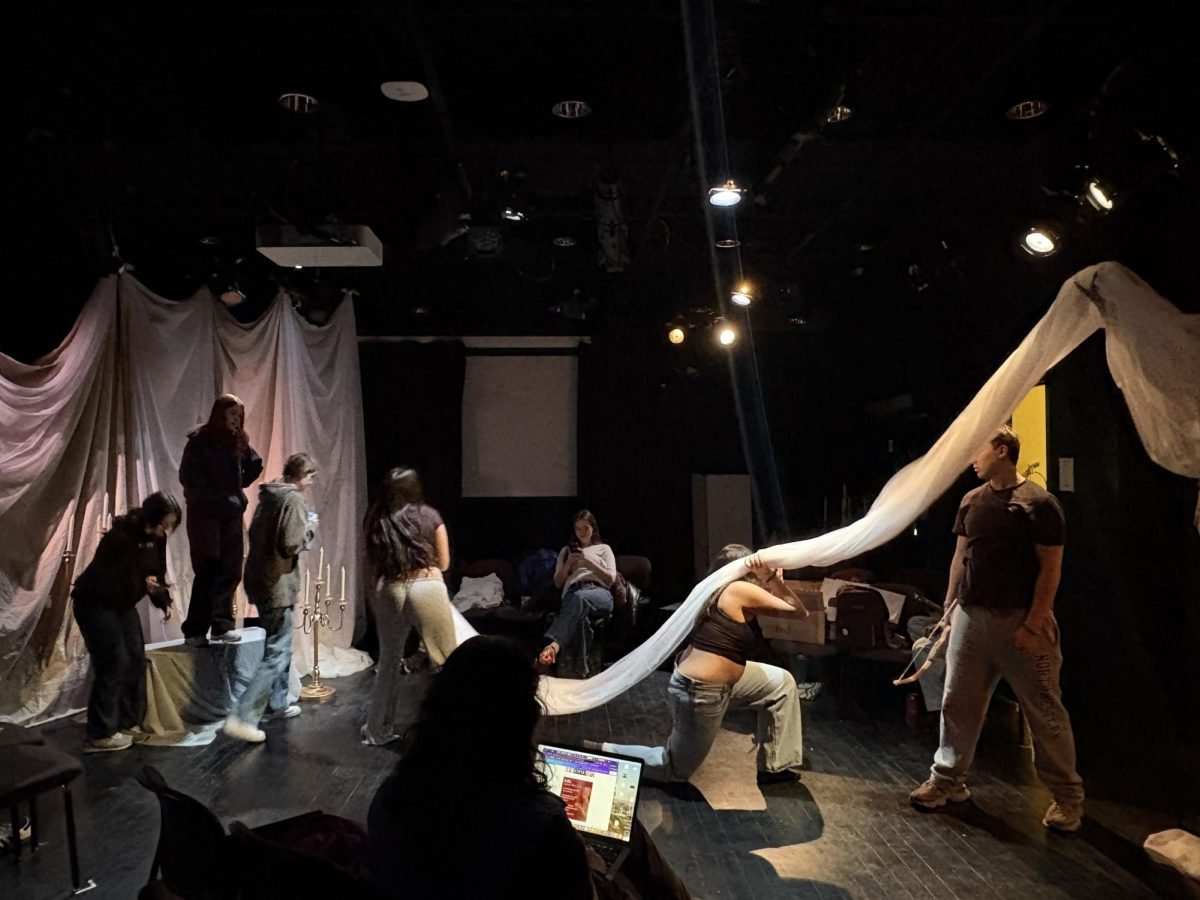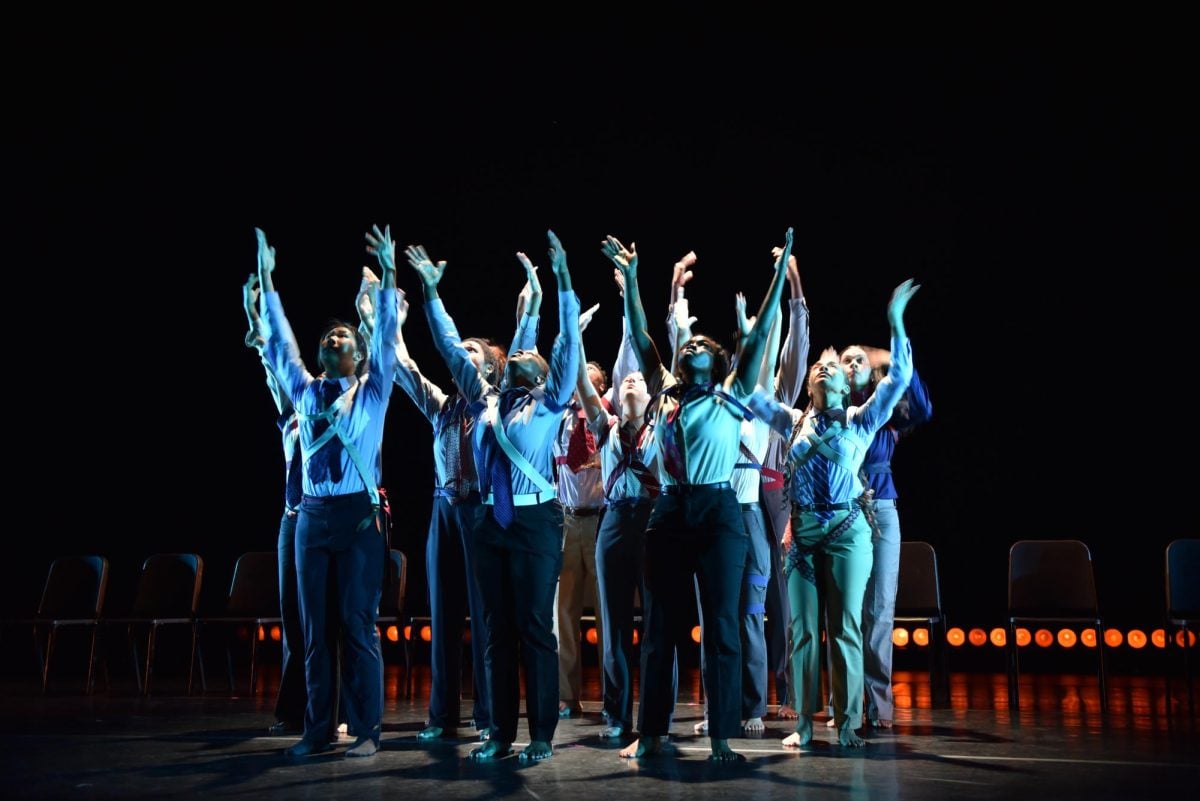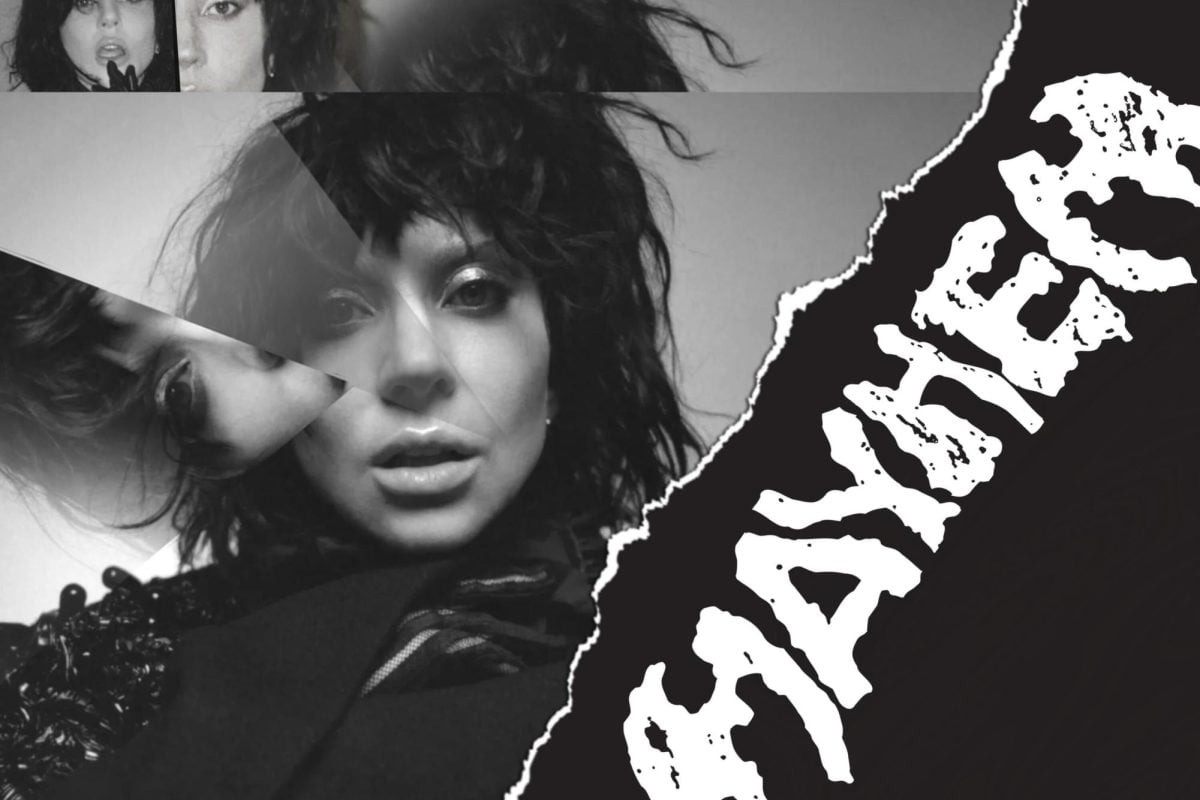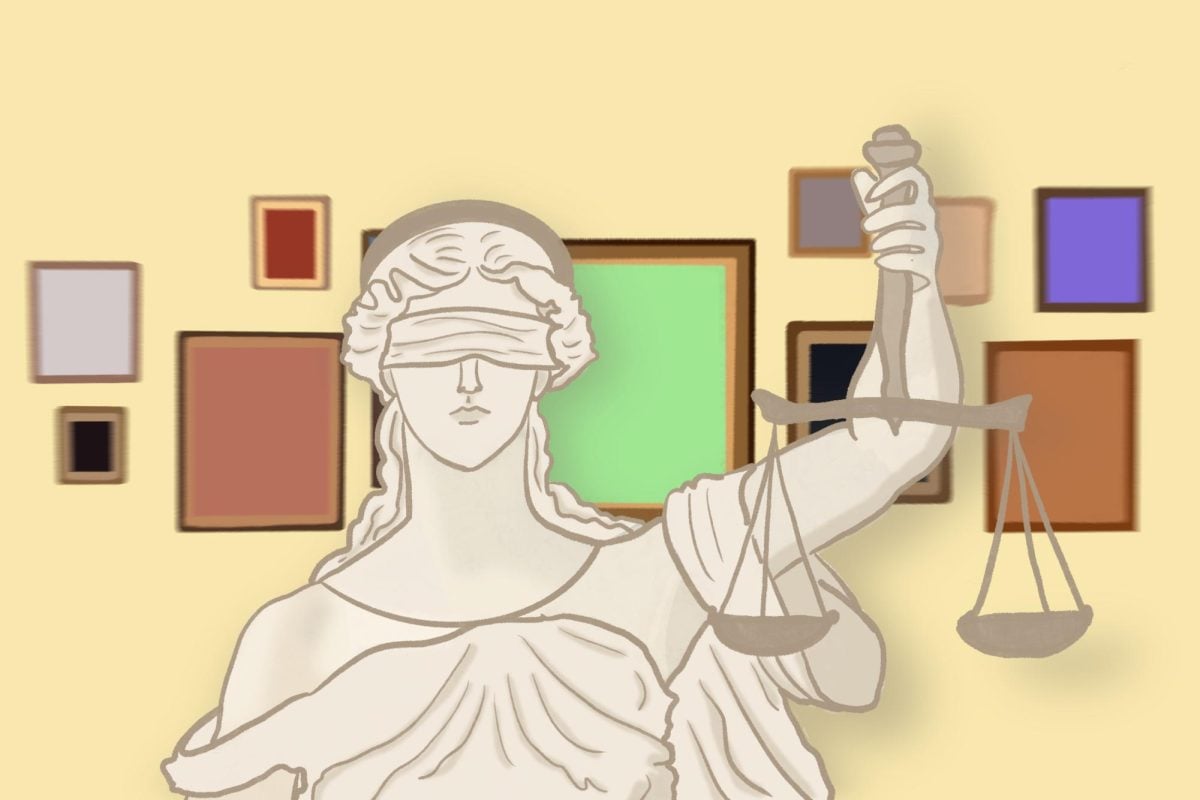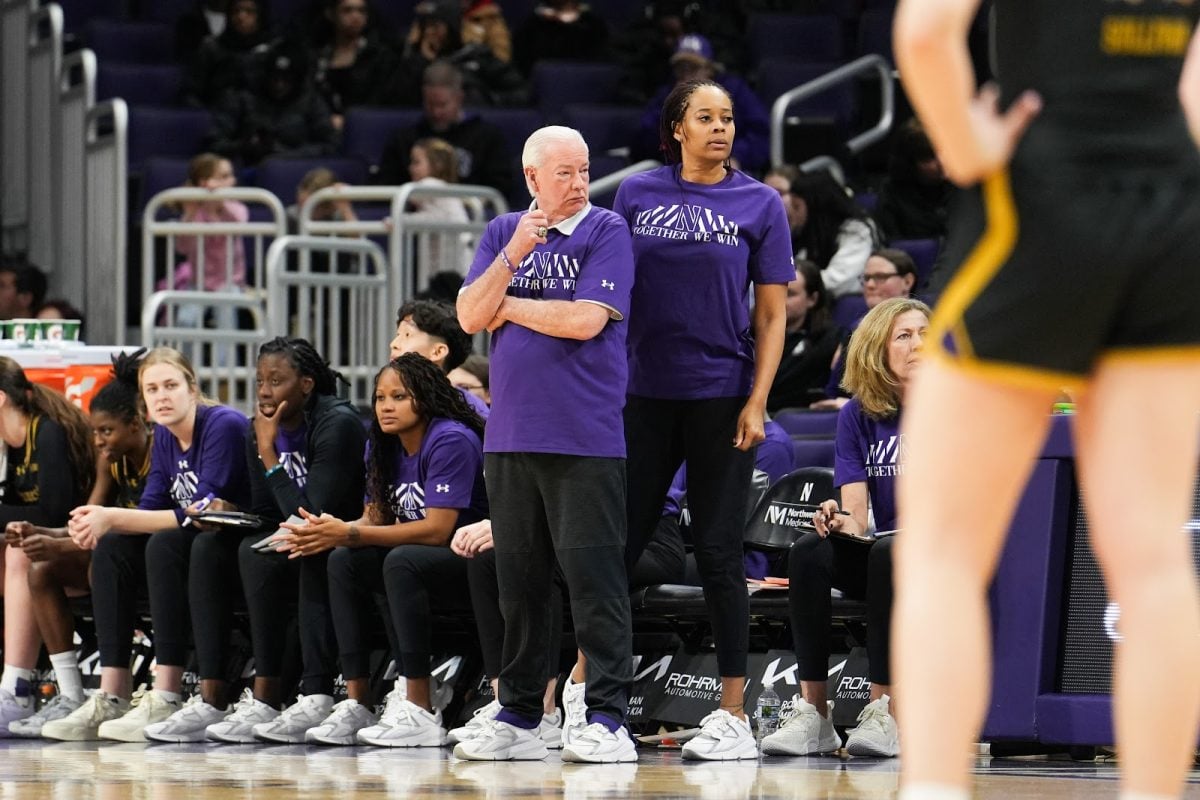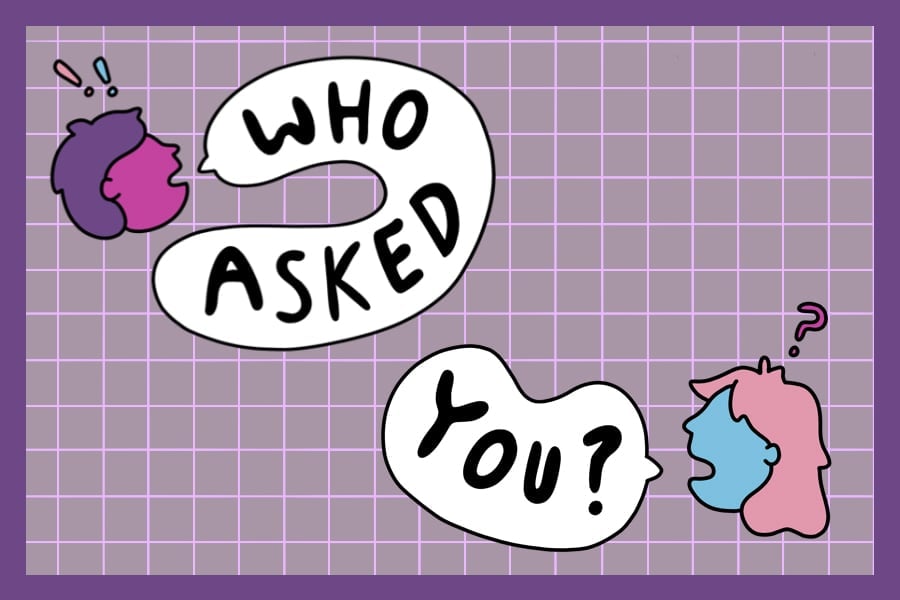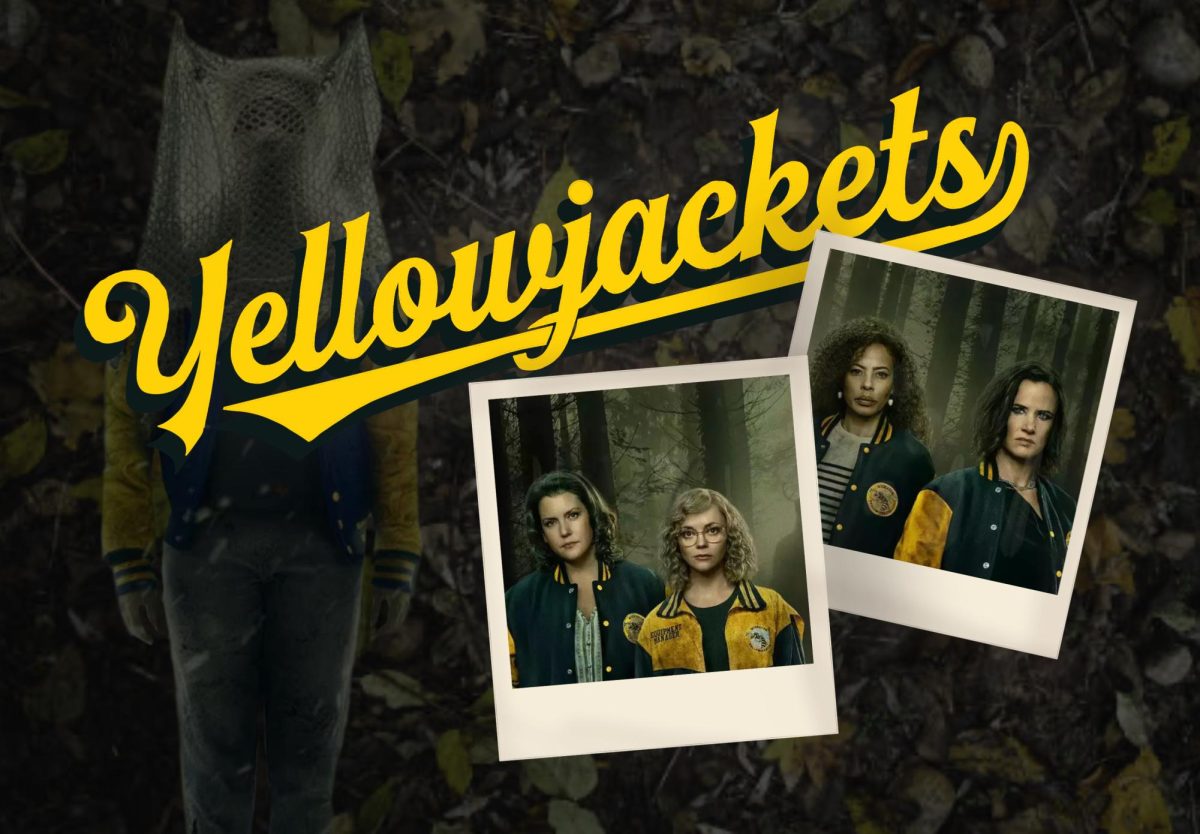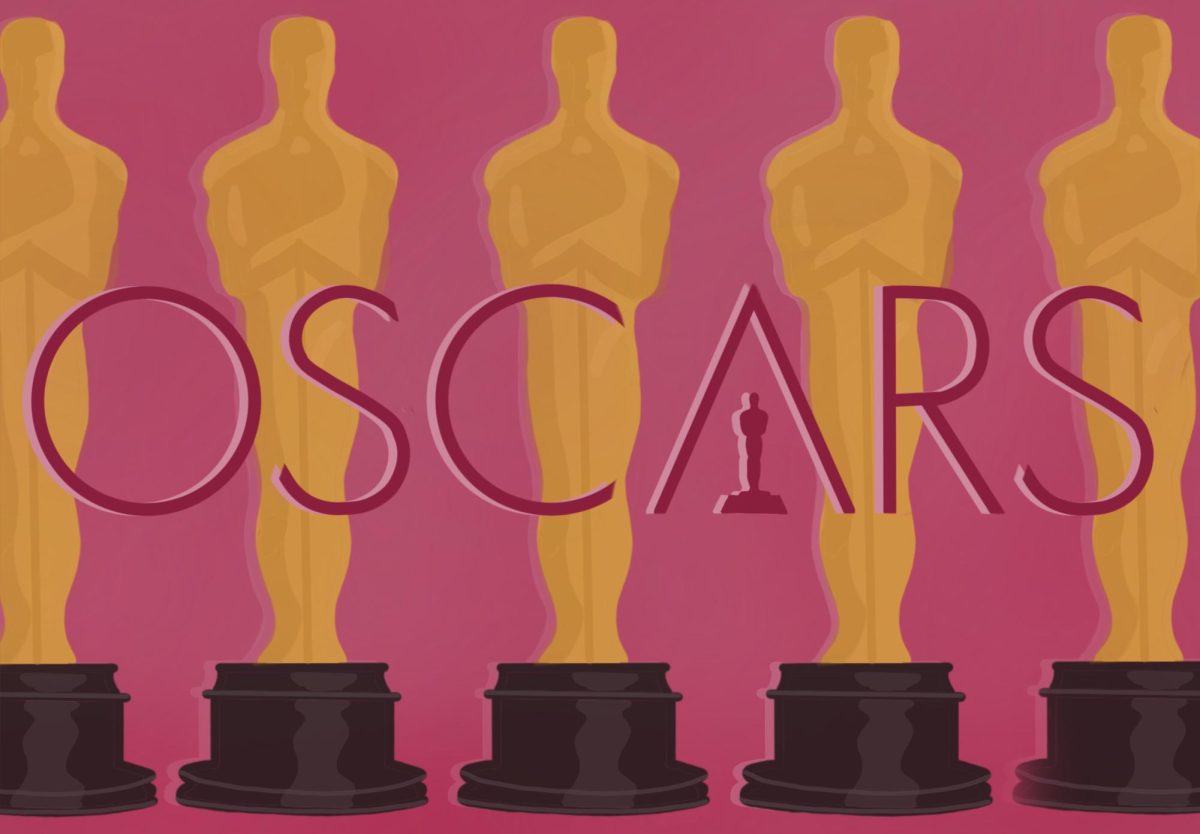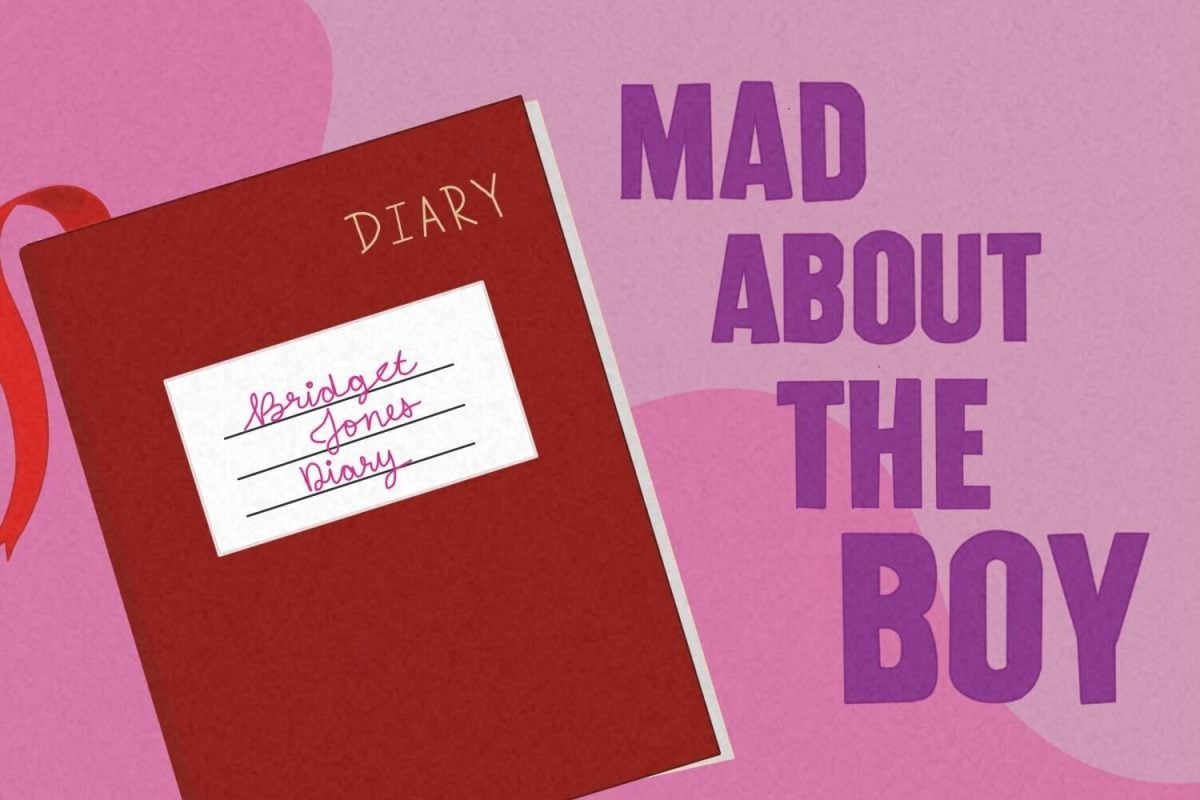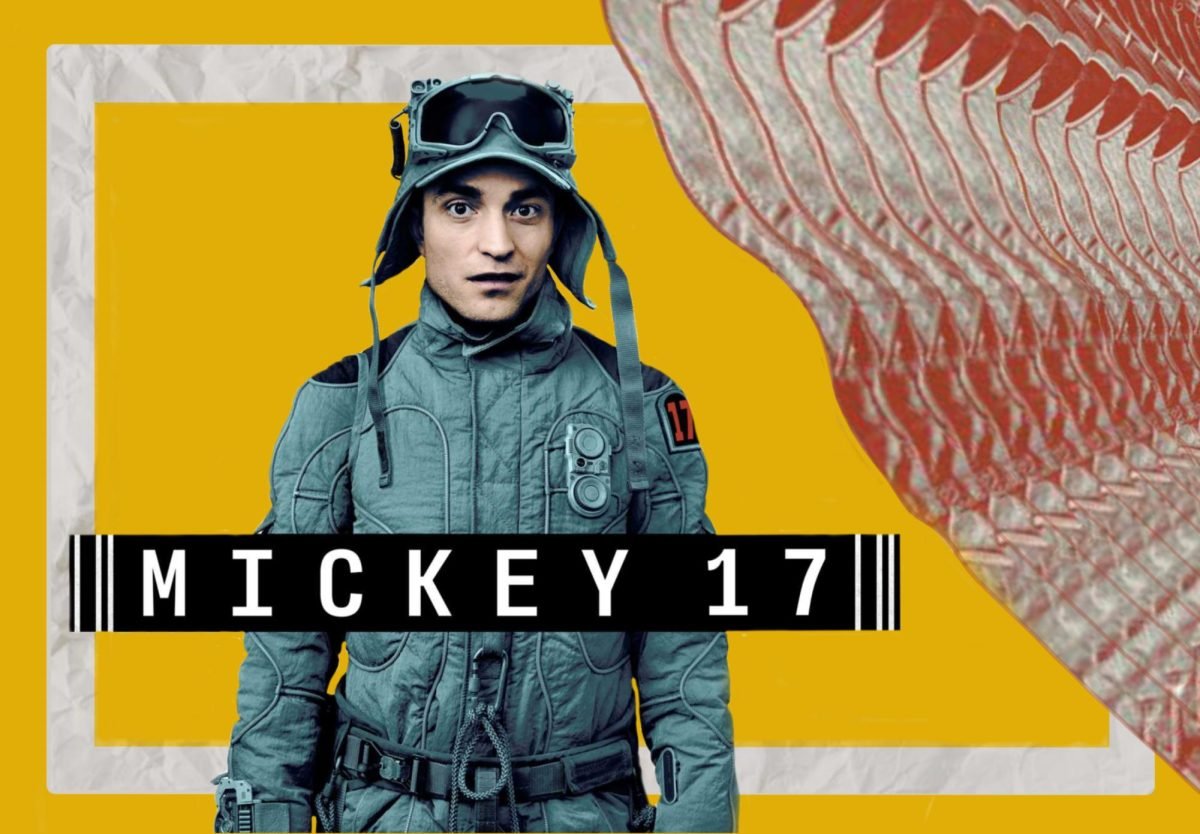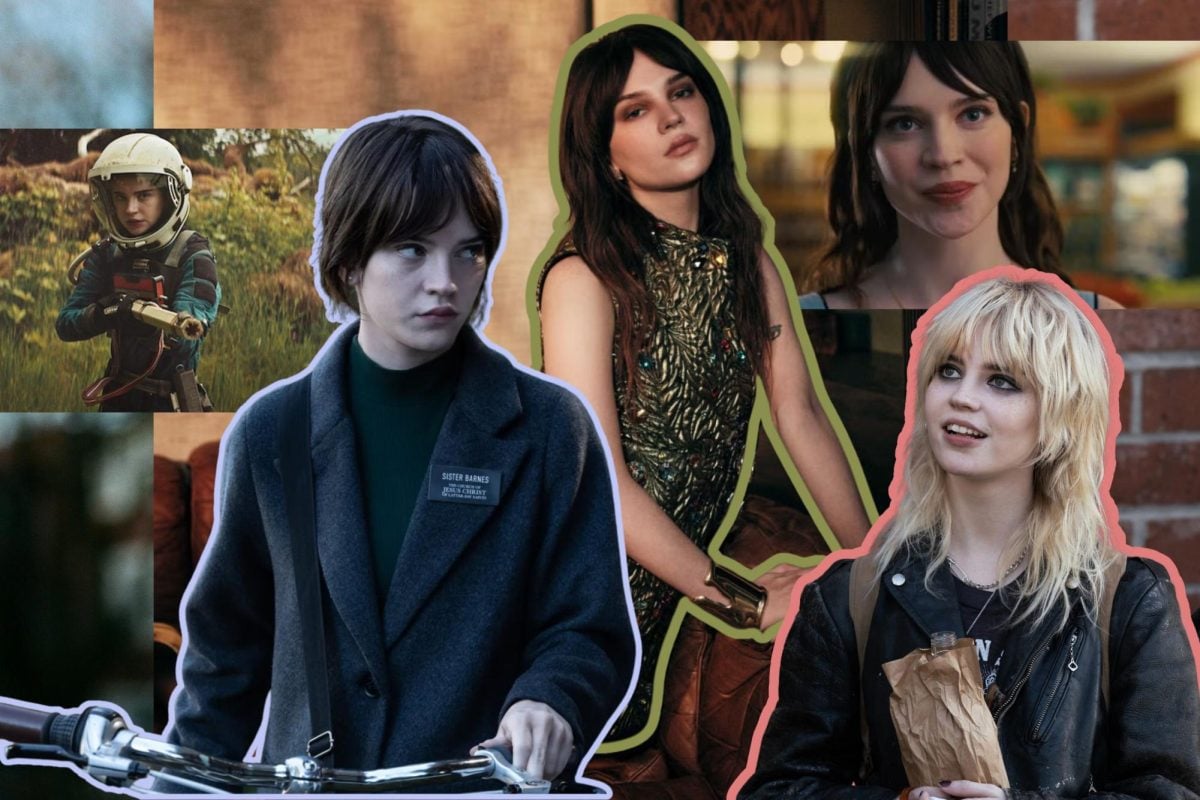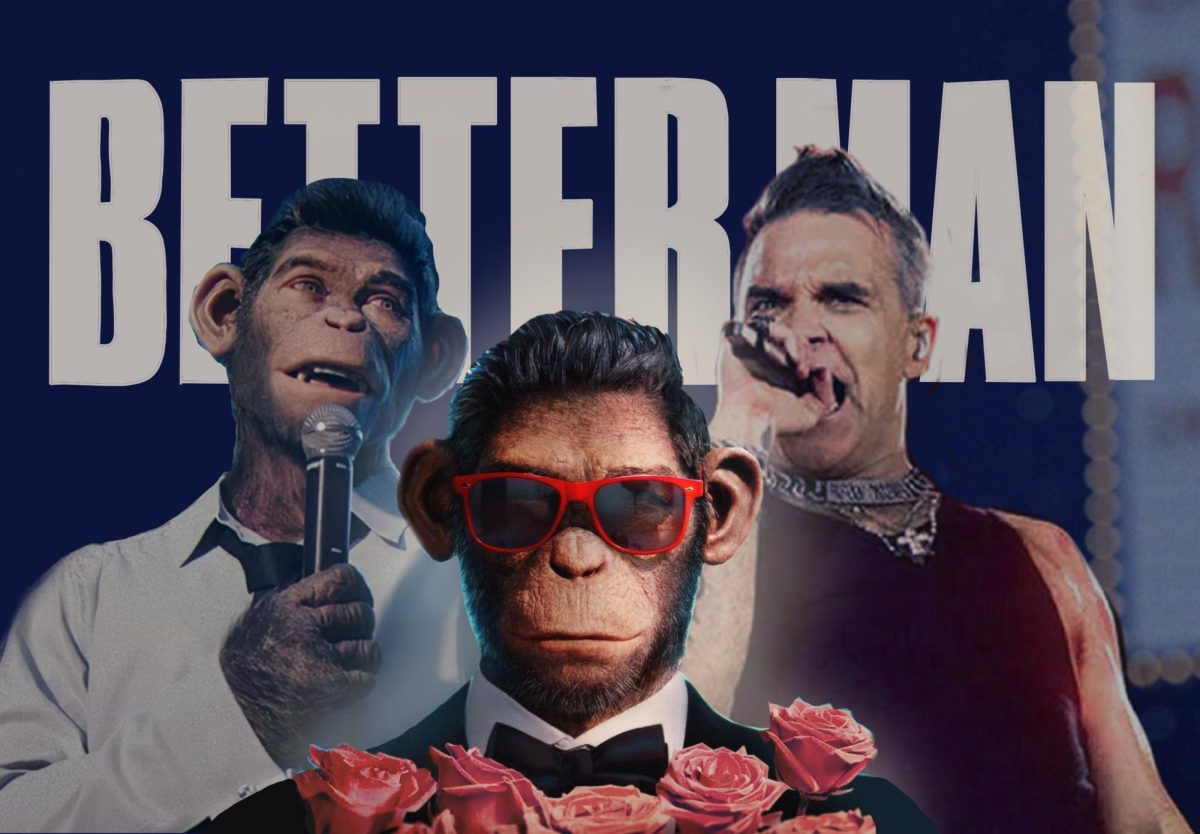From its opening frames of painted nails, hairspray and eyeliner, Sofia Coppola’s “Priscilla” is steeped in femininity in the ways Baz Lurhmann’s 2022 biopic “Elvis” was not. It’s a reminder to the audience: this movie is not about Elvis. “Priscilla” opens the gates of Graceland to tell the ‘60s love story infused with isolation, instability and reclaimed independence.
In her latest film released nationally Nov. 3, “Priscilla,” Coppola explores the sultry and shameful relationship between a young Priscilla Beaulieu (Cailee Spaeny) and Elvis Presley (Jacob Elordi) in an unconventional biopic, inspired by Priscilla Presley’s 1985 memoir, “Elvis and Me.”
Viewers meet Priscilla as a young 14-year-old when she starts seeing the superstar, then 24. Initial scenes between the pair are chaste and tender, humanizing Elvis’ persona offstage. Behind his public persona, Elordi’s Elvis struggles with the meaning of his fame. He worries about having a music career while stationed in West Germany and confides in Priscilla about the death of his mother.
But the all-consuming nature of first love has Priscilla on a path of self-destruction after she moves to Graceland. She struggles to graduate from high school while Elvis is away for weeks at a time and her classmates gossip about their relationship. Her partner also influences a change in appearance as we see Priscilla’s light brown hair dyed jet black.
Through all of this, she’s only 14 through 17.
Priscilla Presley has publicly said that she and her former husband were never intimate when she was a child. The movie honors this account and avoids placing judgment on Elvis, but several scenes remain hard to watch. A montage where the couple photograph each other in bed, with the girl in costumes, had me recoiling.
It’s tumultuous, toxic and terrible. Coppola trusts viewers to see the unbalanced power dynamic between the two but still brings us alongside Priscilla as she swoons over Elvis.
Through the years, Priscilla’s devotion never wavers. She brings her husband breakfast when he’s knocked out on opiates and waits for him while he works on the West Coast. Coppola hauntingly illustrates the loneliness and emptiness Priscilla may have felt in those moments, showing audiences wide open shots of empty hallways and countless reports of alleged affairs.
Eventually, the illusion of Graceland shatters. Spaeny’s performance as Priscilla becomes defiant and angry as she matures, unwilling to excuse Elvis any longer. She sheds the girlish dresses, thick eyeliner and dyed hair. It’s a quiet resistance that has the two living separate lives by the time their daughter is born.
With “Priscilla,” Coppola continues studying the themes she’s known for — the vapidness of excess, feminine sadness — and rejects the nostalgia and romanticization found in recently released biopics. Devoid of flashiness, it shows how messy any form of first love is, let alone with a renowned rock and roll icon.
Set to a beautiful, Elvis-free soundtrack, this might be Coppola’s best work in years.
Email: beavillaflor@u.northwestern.edu
Twitter: @beatricedvilla
Related Stories:
— Reel Thoughts: Martin Scorsese’s ‘Killers of the Flower Moon’ is a harrowing masterpiece
— Reel Thoughts: ‘Saltburn’ delivers shock, style amongst aristocratic debauchery

